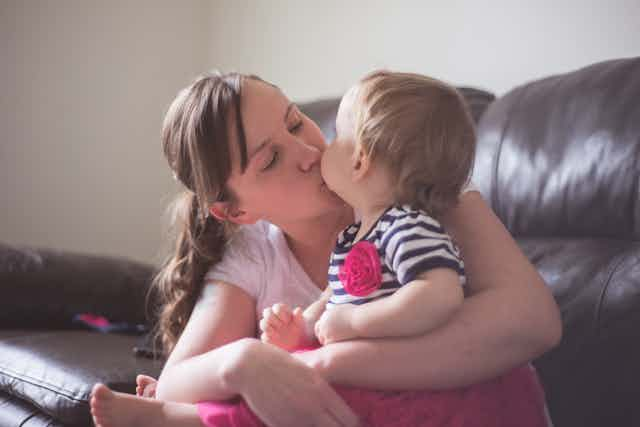Much is written and said about families living in poverty, but accounts rarely draw on the experiences of these families themselves. Read the newspapers or listen to politicians, and you’d think that these “troubled families” are fundamentally different to better off people. They are presented as living in “cultures of dependency”, where no one has had a job for generations. People claiming social security benefits are portrayed as feckless scroungers.
That’s why my colleagues and I spent two years with eight families in Leeds and York, developing an in-depth understanding of how they thought, talked and acted in relation to their resources.
We also surveyed 1,000 parent-child pairs, with children aged ten to 17 who were representative of England in terms of gender, age and socioeconomic status, to find out how families’ different approaches to getting and sharing resources related to the well-being of children.
Shared interests
After checking and rechecking our data, we found no evidence of any fundamental differences between poorer and better off families, in terms of the motivations, aspirations and interests of children or their parents.
All of the children in our study were interested in having fun and fitting in, and in learning the skills they would need for a healthy and enjoyable adult life. All of the parents in our study put their children’s needs first, and wanted to support them in any way possible.
And all of the families in our study discussed tensions around certain types of resources – especially technology, which we found was often valued highly by children, but somewhat bewildering to parents.
We followed this up by looking at how parents and children responded to questions in our surveys about the people in their lives who contributed to their material well-being, the resources they valued and had access to and how their family went about obtaining, negotiating and sharing resources. This too confirmed that there were no fundamental differences in families’ approaches, based on the level of income available to the household.
Going without
A second and bleaker message also emerged from our findings. While all of the families in our study wanted to pursue their interests and aspirations – the nature of which were very similar across the socioeconomic spectrum - children and parents in poverty were much more limited in their ability to realise their hopes and ambitions, and had to use extra coping tactics to survive on limited incomes.

We asked a range of questions about what children and parents had done because their family did not have enough money. Children who were in a low income household and materially deprived were 4.5 times more likely to have not eaten or not eaten enough when they were hungry than their better off peers.
They were also 5.6 times more likely to have had to wear old or poorly fitting clothes or shoes; 5.2 times more likely to have pretended to their family not to need something; 6.7 times more likely to have pretended to their friends that they did not want to do something that cost money, and 4.4 times more likely to miss out on social activities.
Their parents were, almost without exception, even more likely to have economised in each of these ways – including being 7.9 times more likely than better off parents to have gone hungry.
Children were also asked whether they had been made to feel embarrassed or small due to a lack of money – and children who were in a low income family and deprived were 6.7 times more likely than others to say that this was the case.
This points not only to the devastating impacts that poverty has on children, but also to the pervasive nature of ideas which suggest that poor people themselves are somehow to blame for their situation in life. Perversely, they are made to feel ashamed because they don’t have the resources to have the same things and engage in the same activities as their better off peers.
Time for change
Poverty is a complex problem. But these findings do give us a sense of what changes are needed. To begin with, it’s crucial to change the conversations we have about poverty, between politicians, in the media and in everyday chats.
Instead of talking about how people in poverty should change, we should be talking about how social structures can change to make sure that we all get a fair share. This will help to reduce the stigma and shame which people in poverty are exposed to.
This could help pave the way to less punitive policies. Welfare reforms have led to cuts in the services and incomes available to families in poverty. For example, over the past decade there has been a 10% decrease in the incomes available to families in the bottom 10% of the income distribution.
These policies must be reversed. Instead, the government must make sure that families have enough to live on, and that children are not missing out on resources and opportunities which are taken for granted by their better-off peers.
And rather than trying to alter the aspirations and motivations of families in poverty by imposing more stringent conditions, alongside punitive (and ultimately ineffective) sanctions, on people claiming benefits, the government and those who work with families in poverty should take a rights-based approach.
In practice, this means that families should be supported to access the full range of social security benefits and resources that they are entitled to, and activities for children should be designed in such a way that children in poverty are not excluded or identified as poor, and exposed to stigma and shame.

